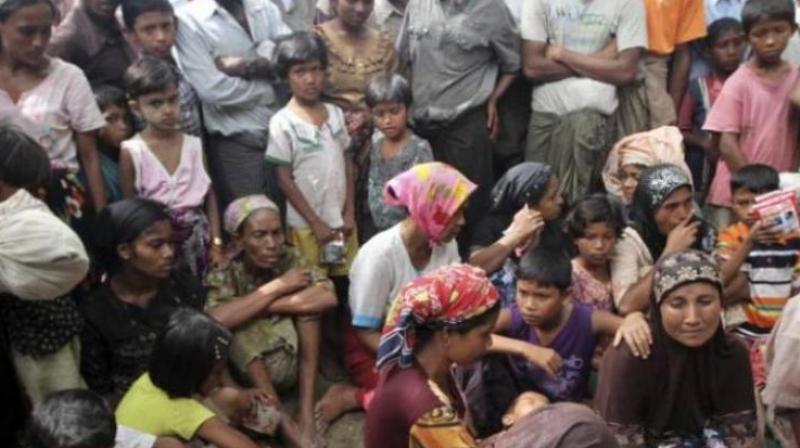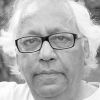Faceless tragedies
As the audience meets the superstitious, raucous inhabitants of Anatevka, the distant rumours of anti-Semitic pogroms are audible.

Joseph Stalin is reputed to have said: “A single death is a tragedy; a million deaths are a statistic.”
The same applies to migrants. Today, we are concerned about the ethnic cleansing in Myanmar that has driven over 100,000 unfortunate Rohingya Muslims to Bangladesh. But these are mostly faceless refugees: to be pitied, but hard to empathise with. This goes for all the hundreds of thousands fleeing from conflicts, lawlessness or poverty in Syria, Iraq, Afghanistan, Eretria, Nigeria and many other countries that are sinking into chaos. Even as their westward movement is tracked by TV cameras and well-meaning commentary, they remain anonymous.
It’s only when you actually meet somebody displaced from his home that a refugee moves from being a statistic to a real, flesh-and-blood human being. In my case, this happened while watching a recent production of Fiddler on the Roof.
Usually, musicals are fluffy entertainment that seldom carry a serious message, or force the audience to think beyond the songs and dances they provide, often with great panache. But they are hardly ever vehicles for big ideas.
Fiddler on the Roof is set in the shtetl, or “little town”, of Anatevka in Russia. For some 250 years, Russian Jews were restricted to these small rural communities, barred by law from going to university, or entering professions like law and medicine, or owning land. They were hardly ever given permission to leave their shtetls, and this lack of mobility contributed to a high degree of social cohesion. Although life must have been tough, it still evokes a lot of nostalgia among Jews descended from shtetl refugees.
As the audience meets the superstitious, raucous inhabitants of Anatevka, the distant rumours of anti-Semitic pogroms are audible. But life goes on, and Teyve, the play’s central figure, struggles to balance the winds of change with the community’s deeply conservative ethos. Tradition! is a rollicking song about the need to cling to the old ways. But Teyve — brilliantly played by Omid Djalili, the Iranian stand-up comic and actor — is forced to fight a rearguard action to preserve his authority in his family as one by one, his four daughters persuade him to agree to marriages with men he initially didn’t approve of. One of the young men, a radical student from Kiev, is sent off to a labour camp in Siberia, and is followed by his loyal young wife.
Against the backdrop of small-town gossip and bickering, the harsh reality of csarist persecution approaches ever closer. A wedding party is disrupted by Russian soldiers, even though one of them later apologises, saying he was following orders. But soon, the people of Anatevka are told they have to vacate the shtetl in three days.
In the final scene, Teyve and the other townspeople say farewell to each other, and leave with the belongings they can carry to different destinations. Some announce their decision to go to America; others head for Western Europe; and the matchmaker is determined to reach Jerusalem. Theatre demands a suspension of disbelief, and over the two-hour long production, we come to know the characters who come to life on the stage. Watching their funereal procession as they leave their beloved shtetl, it was hard not to shed a tear for their forced departure. Multiply this misery by a million and more, and you get some idea of the pain being suffered by so many unfortunate people around the world today. In many cases, these expulsions are the result of nationalism and faith.
Thus, for the majority Buddhists of Myanmar, the Muslim Rohingyas are outsiders who do not deserve nationality, dignity or the right to their own homes. Hundreds of thousands of Christians have been displaced in Iraq; non-Muslims are forever at risk in Pakistan; and Shias and Sunnis are locked in battle across West Asia.
As tribes have evolved into nations, and religious views have become more intolerant, the killing frenzy has mounted. In fact, these two forces have led to more death and destruction than any other cause. Even secular ideologies like communism and fascism have triggered inhuman butchery.
Old footage from Partition of the countless people killed and displaced reminds us of the high price we paid to separate Muslims from non-Muslims, even though there are as many Muslims in India today as there are in Pakistan. Then many thought Bengali Muslims could not live with their West Pakistani brethren, and today, many Sunnis consider Shias to be apostates, and vice-versa.
So where does this atomisation end? Nations, faiths, sects and ethnicities have divided us as never before. Education and progress have done little to break down these ancient barriers as we build walls instead of bridges. As the Rohingyas are driven out, we must ask if it’ll be our turn next.

